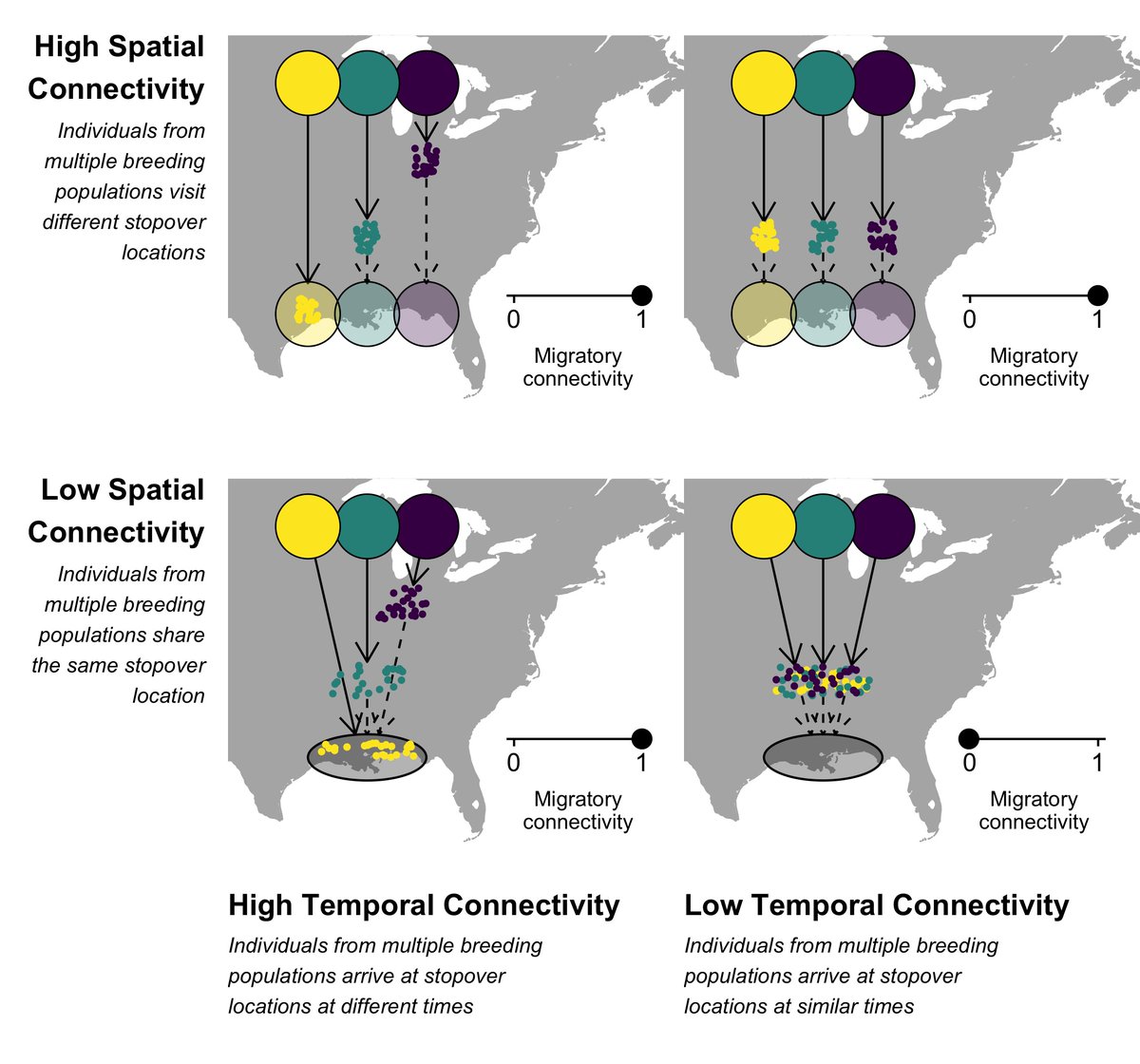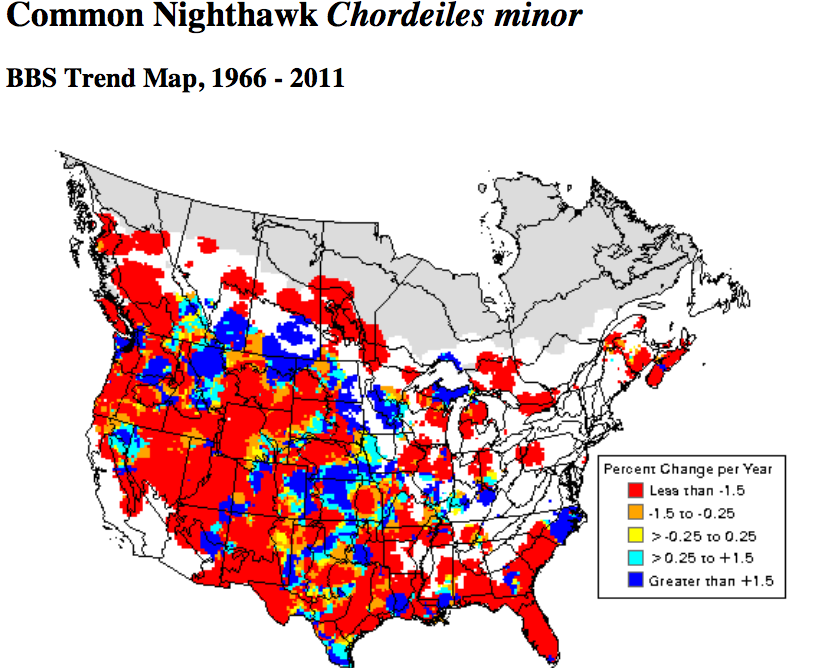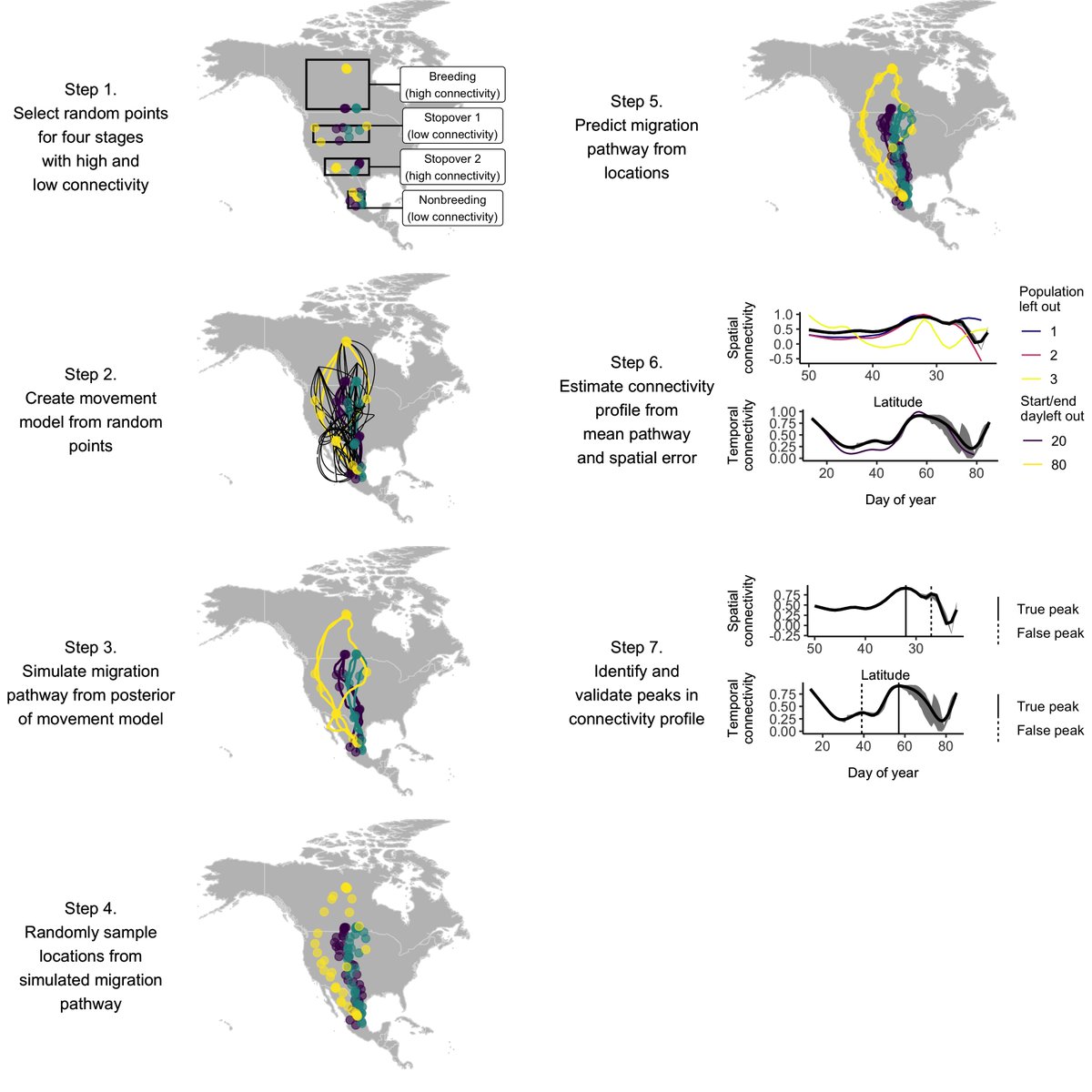#Nightjar alert! The first paper of our continent-wide tracking study on Common Nighthawks is out in @EcographyJourna
Comprehensive estimation of spatial and temporal #MigratoryConnectivity across the annual cycle to direct conservation efforts
https://onlinelibrary.wiley.com/doi/full/10.1111/ecog.05111
1/n
Comprehensive estimation of spatial and temporal #MigratoryConnectivity across the annual cycle to direct conservation efforts
https://onlinelibrary.wiley.com/doi/full/10.1111/ecog.05111
1/n
Common Nighthawks are declining across much of their range, but why?
Like other aerial insectivores, there are many potential pressures: habitat loss, drought, aerial insect declines etc.
To complicate matters, those pressures could occur anywhere in annual cycle!
2/n
Like other aerial insectivores, there are many potential pressures: habitat loss, drought, aerial insect declines etc.
To complicate matters, those pressures could occur anywhere in annual cycle!
2/n
A massive continental collaboration allowed us to range-wide tracking and #MigratoryConnectivity to narrow down potential pressures for next research steps
3/n
3/n
#MigratoryConnectivity is the degree to which birds from an individual population stick together in space and time across the annual cycle
High migratory connectivity exposes individual populations to local environmental conditions
4/n
High migratory connectivity exposes individual populations to local environmental conditions
4/n
So the times & places when #MigratoryConnectivity is elevated are those that would explain differences in trend between populations!
Identifying those times & places can be used to direct next steps for nighthawk #conservation research
5/n
Identifying those times & places can be used to direct next steps for nighthawk #conservation research
5/n
But in order to ID times & places of elevated connectivity requires a comprehensive estimation of #MigratoryConnectivity, which is difficult when birds are on the move during migration
6/n
6/n
So we developed "connectivity profiles" that estimate migratory connectivity at every latitude and every day of migration
We used simulation to show our approach is helpful even with sparse and/or sporadic datasets
Details in the #OpenAccess paper: https://onlinelibrary.wiley.com/doi/full/10.1111/ecog.05111
7/n
We used simulation to show our approach is helpful even with sparse and/or sporadic datasets
Details in the #OpenAccess paper: https://onlinelibrary.wiley.com/doi/full/10.1111/ecog.05111
7/n
Connectivity profiles for the Common Nighthawk show little #MigratoryConnectivity outside of North America because this species congregates along the Mississippi flyway in the fall and then uses a single, broad migration route south
8/n
8/n
Populations are also pretty mixed together on the wintering grounds, especially after 7 of our birds moved north to secondary wintering areas
9/n
9/n
Spring migration also had low connectivity
Except for a spike in northern South America, which could be an important stopover region for nighthawks to fuel up before crossing the Gulf of Mexico
10/n
Except for a spike in northern South America, which could be an important stopover region for nighthawks to fuel up before crossing the Gulf of Mexico
10/n
So what's next?
We deployed tagged nighthawks to span gradient of population trend
We'll partition variance in population trend with covariates that represent potential pressures in North America and northern South America
11/n
We deployed tagged nighthawks to span gradient of population trend
We'll partition variance in population trend with covariates that represent potential pressures in North America and northern South America
11/n
Range-wide tracking is a massive undertaking that can only be done as a team
It was a real privilege and honour to work with so many amazing researchers on this fascinating species!
You can read about the collaboration on the @PartnrsInFlight site
https://partnersinflight.org/the-common-nighthawk-migratory-connectivity-project/
12/n
It was a real privilege and honour to work with so many amazing researchers on this fascinating species!
You can read about the collaboration on the @PartnrsInFlight site
https://partnersinflight.org/the-common-nighthawk-migratory-connectivity-project/
12/n
Here's just the folks that are on Twitter!
@PeterPMarra @needmarine @zonotrick @janetngbio @reed_bowman @fozlab @TaraImlay @AnousBirding @Tremblay_Jun
@ualbertaScience @SMBC @MigConnectivity @environmentca @ArchboldStation @UofRScience @BirdsCanada @usd @TexasTech
13/n
@PeterPMarra @needmarine @zonotrick @janetngbio @reed_bowman @fozlab @TaraImlay @AnousBirding @Tremblay_Jun
@ualbertaScience @SMBC @MigConnectivity @environmentca @ArchboldStation @UofRScience @BirdsCanada @usd @TexasTech
13/n

 Read on Twitter
Read on Twitter











